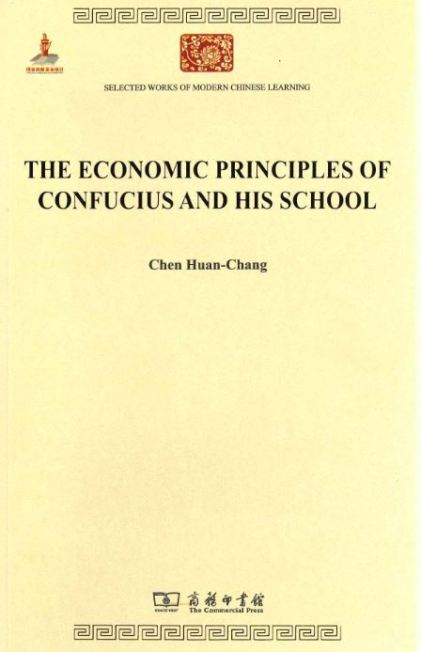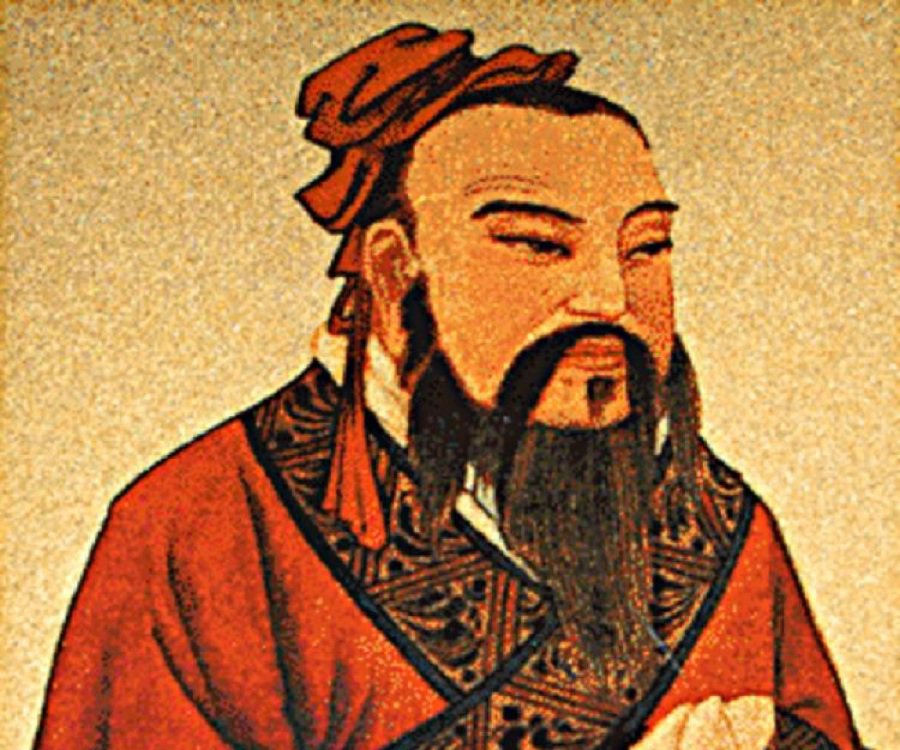Book Extract- The Economic Principles of Confucius and His School 孔子及其学派的经济原理

Despite all the theories on economic development that put forward Eurocentric ideas about historical progress and the nature of mankind, the driving force behind the world’s largest economics is the average person. In theory, a country seeks to develop and build its economy to better the life of people, which allows the state to function. The success of a state’s economic policy is based on effective production, access to resources, and fair distribution. Without people supporting this process, the government would be unable to defend its territory, develop its resources, or care for its citizens. At least, this is what Confucius argued. Trust, reciprocity, and loyalty should form the basis for both business and social life, where transaction and exchange must follow certain principles to work properly.
The successful post-war industrialisation and economic development of Confucian nations made this idea a popular belief. According to Singaporean diplomat Kishore Mahbubani, Confucian (Asian) values include “attachment to the family as an institution, deference to societal interests, thrift, conservatism in social mores, respect for authority”, and it is these values that has helped economic growth in countries like Malaysia, Singapore, Taiwan, and South Korea. The question of whether Confucian values influences economics dates back to the 18th Century, when Voltaire praised China’s Confucian political model of ‘benevolent despotism’ and considered it an example for the West (Yi et al., 2006). Others, like Max Weber, said the exact opposite, and claimed that Confucianism was one of the reasons why modern capitalism failed to develop in China in the late nineteenth century.
Dr. Chen Huan-Chang, author of The Economic Principles of Confucius and His School, was an important voice in this debate as he tried to show that Confucian writings revealed a more systematic approach to organising the economy than was originally thought. His discussions on institutions such as marriage, the family, and private property show that Confucius was an economist as well as a moral philosopher. The following is an extract from the eighth chapter of Chen’s book, titled ‘Economics and Ethics’. Views and Opinions expressed in this extract are those of the author and do not necessarily reflect the Confucian Weekly Bulletin.
“In the Confucian system, there are two great principles. One is called love, or humanity; the other, justice, or righteousness. It may be interesting to notice that, according to the Chinese etymology, the world love is formed from denoting the word man, or others, and the word justice from the word denoting self. Thus the primary meaning of the world love is a relation between persons; and that of justice is an aspect of the self. We love others, but we justify ourselves. Hence we should strictly control ourselves, according to the highest standard of morality, and treat others liberally, according to the ordinary level of human nature. Confucius says: “The superior man reasons about theoretical principles from the standpoint of himself, but lays down practical laws from the capabilities of the people.” Therefore, regarding ourselves, Confucius puts ethical teaching above economic life, in some cases, life itself should be sacrificed for the sake of virtue; but regarding society as a whole, he puts economic life before ethical teaching.
The best illustration of this principle is given in the Analects. When Confucius went to Wei, Jan Yu acted as a driver in his carriage. Confucius observed, “How numerous are the people!” Jan said, “Since they are thus numerous, what more shall be done for them?” “Enrich them,” was the reply. “And when they have been enriched, what more shall be done?” Confucius said, “Instruct them”
Before we can instruct the people, we must enrich them, no matter how few or many there are. This is a universal principle. The Canon of Poetry repeats three times the following two sentences: “Give them drink and give them food. Instruct them and teach them.”
If we understand in the beginning that Confucius gives two principles for the two classes of men, one for the officials and students, the other for the mass of common people at large, we shall avoid confusion. For the higher class, ethical life is first, but for the lower class, economic life is first. Confucius says: “The mind of great men is conversant with justice; the mind of small men is conversant with profit.” In speaking of great men and small men, he refers to their social standing. This theory is very clearly stated by Tung Chung-shu when he says: “Busily seeking for wealth and profit, and fearing only the condition of want, this is the mind of common people; busily seeking for love and justice, and fearing always that they could not influence the people, this is the mind of ministers and great officials.” Such a statement, of course, is only a theory, not fact. Yet we must understand that Confucius has these two classes in his mind, and sets forth two different principles for them. On the one hand, he forbids the higher class, from emperor to student, to seek private gain. They should confine themselves to the ethical life. On the other hand, he allows the lower class to make profit, and thinks that they ought to do so. Hence, for the governing of society, Confucius takes up the economic life of the people for the first consideration. The “Great Learning” describes the effects of a good government as follows: “The common people find pleasure in what they call their pleasure, and find profit in what they call their profit.” We are sure that Confucius, in the program of his reformation, feels that economic betterment is the first item.
Unfortunately, since the Confucians of the Sung dynasty did not wholly understand the principles of Confucius and thought that he did not approve even talking about profits, the teachings of Confucius failed to be considered of great importance in the practical world, and the Chinese suffered a great deal through need of economic reforms. They made such a great mistake because they misunderstood the statements of Mencius and Tung Chung-shu. Mencius tell the King Hui of Lian: “Why must your Majesty use that word profit? What I am provided with are counsels concerning the principles of love and justice, and these are my only topics.” Tung Chung-shu tells the Prince of Kiangtu: “The man of perfect virtue is thus: following strictly justice, not for the sake of profit; discussing thoroughly principle, not with the expectation of success.” This simply means virtue for virtue’s sake. These two statements given by Mencius and Tung Chung-shu are quite good in themselves, but they do not mean that the economic problems should be left entirely out. They have their own writings, and we can find their economic principles even from the quotation of this treatise. They are talking to the king and the prince, and such men, of course, are forbidden by Confucius to talk about profits. We never expect to use the same prescription for everybody; why should we apply those statements to everyone? Neither Confucius, nor Mencius, nor Tung Chung-shu, nor any great Confucian before the Sung dynasty, has ever said that the common people should not talk about profits. Moreover, the Confucians of the Sung dynasty did not distinguish the public profits from private profits, and left them both out of consideration. This has been a great obstacle to the economic development of China.”
To have your say on Chen’s analysis, comment in the box below.
